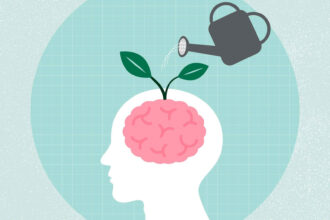In our modern, fast-paced world, stress has become a pervasive aspect of daily life. From the demands of work to the complexities of personal relationships, stress can have a profound impact on our mental and physical health. However, by cultivating resilience, we can navigate life’s challenges with greater ease and overcome the burdens of stress. In this article, we will delve into essential strategies and practices that empower us to develop resilience and find equilibrium amidst the chaos.
Understanding Resilience
Resilience is a remarkable quality that enables individuals to adapt and rebound from challenging situations. It is not about evading or eradicating stress altogether; rather, it involves cultivating the ability to effectively cope with and triumph over obstacles. Resilient individuals possess the tools to manage stress, maintain a positive perspective, and navigate the highs and lows of life with grace and resilience.
Building Emotional Resilience

Building emotional resilience is essential for effectively managing stress and navigating life’s challenges. Here are some key strategies to enhance emotional resilience:
Develop Self-Awareness
Take time to reflect on your emotions, thoughts, and reactions. Increase your self-awareness by paying attention to your triggers, patterns, and the impact of stress on your emotional well-being. Understanding your emotions and their underlying causes can help you respond more effectively and make conscious choices in challenging situations.
Practice Emotional Regulation
Learn to regulate your emotions by developing healthy coping mechanisms. Engage in activities that help you relax and unwind, such as deep breathing exercises, meditation, or journaling. Find healthy outlets for your emotions, such as talking to a trusted friend or engaging in creative pursuits like art or music.
Nurture Positive Relationships
Surrounding yourself with a supportive and uplifting network of individuals is crucial for building resilience. Cultivate healthy and meaningful relationships with friends, family, or mentors who can offer emotional support and guidance. Share your thoughts and feelings with them, and remain open to receiving their valuable perspectives and advice. These connections will provide a strong foundation of support as you navigate life’s challenges and enhance your resilience.
Seek Support When Needed
When facing challenges, don’t hesitate to seek help from trusted individuals, such as friends, family, or mental health professionals. They can offer valuable insights, alternative perspectives, and a listening ear during difficult times. Remember that you don’t have to navigate life’s challenges alone, and seeking support is an essential part of building resilience and finding the strength to overcome adversity.
Develop Resilient Coping Strategies
Build a toolkit of effective coping strategies that work for you. This can include engaging in hobbies or activities that bring you joy, practicing mindfulness or relaxation techniques, exercising regularly, or engaging in activities that promote self-reflection and personal growth.
Remember, building emotional resilience takes time and practice By recognizing and managing your emotions in healthy ways, nurturing positive relationships, and seeking support when needed, you can enhance your emotional resilience and effectively cope with stressors in life.
Cultivating Mental Resilience
Mental resilience involves developing a resilient mindset and strengthening our cognitive abilities. It entails reframing negative thoughts, challenging self-limiting beliefs, and cultivating a growth-oriented perspective. By practicing mindfulness, engaging in positive self-talk, and embracing a problem-solving approach, we can enhance our mental resilience and face challenges with clarity and adaptability.
Nurturing Physical Resilience

Physical resilience is closely linked to our overall well-being. Taking care of our bodies through regular exercise, proper nutrition, and adequate sleep can significantly impact our ability to manage stress and build resilience. Prioritizing self-care activities and creating healthy lifestyle habits contribute to our physical resilience, enabling us to face life’s challenges with energy and vitality.
Seeking Support and Connection
No one is an island, and seeking support from others is a crucial aspect of resilience. Building strong social connections, whether through family, friends, or support groups, provides a network of support and understanding. Sharing our experiences, seeking guidance, and offering support to others fosters a sense of belonging and reinforces our resilience in times of stress.
Embracing Adaptability
Embracing adaptability is a key component of building resilience and effectively managing stress in the face of life’s uncertainties. Here’s how you can cultivate adaptability:
- Recognize the Nature of Change: Understand that change is inevitable and a natural part of life. Accepting this reality can help you develop a mindset that is open to embracing new experiences and challenges.
- Cultivate Flexibility: Foster a flexible attitude by being open to different perspectives, ideas, and approaches. Avoid rigid thinking patterns and be willing to adapt your plans or expectations when necessary. Flexibility allows you to adjust and navigate through unexpected situations with greater ease.
- Develop Problem-Solving Skills: Strengthen your problem-solving abilities by adopting a proactive approach. Break down challenges into smaller, manageable tasks, and explore different solutions
- Developing problem-solving skills helps you approach obstacles with a sense of confidence and resilience.
- Practice Mindfulness: Cultivate mindfulness to stay present and fully engaged with the current moment. Mindfulness enhances your ability to adapt by fostering awareness of your thoughts, emotions, and reactions. This awareness allows you to respond consciously to changes rather than reacting impulsively.
- Embrace Learning Opportunities: View obstacles and setbacks as opportunities for growth and learning. Instead of dwelling on what went wrong, focus on what you can learn from the experience. Seek out new knowledge, skills, and perspectives to help you adapt and navigate future challenges more effectively.
Conclusion
Mastering stress and navigating life’s challenges with resilience is an ongoing journey. By understanding and implementing strategies to enhance emotional, mental, and physical resilience, we can effectively manage stress, maintain balance, and thrive in the face of adversity. Remember, resilience is not something we are born with, but rather a skill that can be cultivated and strengthened over time. With practice and perseverance, we can master stress and emerge stronger, wiser, and more resilient individuals.











